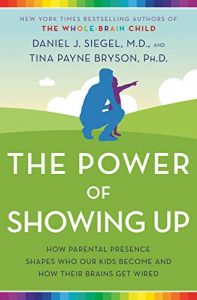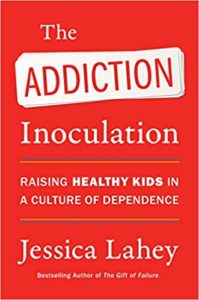
Sign in
Don't have an account with us? Sign up using the form below and get some free bonuses!

We've all seen the happy child who leans into life, smiling all the way, seemingly without a care in the world. How does this happen? Are they born this way, or can we teach kids ways to optimize their emotional well being?
Indeed, some children are born happier. Temperament, driven partially by genetic makeup, can make for an easygoing child. However, genetics account for only 20 - 60% of the child's temperament (source). This is good news, because it means good parents can influence their children's happiness for the better.
There are countless articles about how to raise a happy child, but I've boiled it down to just those practices that are proven to drive long-term happiness.

Scientists have shown that
"...brain levels of serotonin -- the 'happy hormone' -- are regulated by the amount of [healthy] bacteria in the gut during early life. The research shows that normal adult brain function depends on the presence of gut microbes during development..." (source)
and
"...A balanced diet, including fish, vegetables, cereals, fruits, and water can help our gut bacteria to be healthy. Healthy gut bacteria will have a positive effect on the brain and our moods. 'Happy gut bacteria' will help us to have 'happy brains'..." (source)
If you have a picky eater, this video may help.
Related book recommendations: Life Will Get Better: Simple Solutions for Parents of Children with Attention, Anxiety, Mood and Behavior Challenges and It's Not About the Broccoli (afflinks)

It's nearly impossible to have a happy child who's also an exhausted child.
"...sleep might just be the key to our happiness and peak performance. Nothing could be more true for children. Kids need a lot of sleep to be happy. Unfortunately, studies show that kids are getting significantly less sleep per night than they did in previous generations. This is of no small consequence." (source)
There's plenty of scientifically backed research about the effects of lack of sleep: children learn less, they feel worse, and they -- no surprise here -- behave worse when they're tired.
Most children need:
Recommended mini-courses: How to help babies sleep when you don't want to cry-it-out and The Peaceful Parenting Approach When a Child Won't Stay in Their Bed Recommended book: No-Cry Sleep Solution

One life changing approach is to shift from doing what makes us happy to what makes our kids happy. Even with the best intentions, we often (wrongly) assume it's the same thing! Do you know your child's love language?
Of course, we matter, too, and it's not all about the kids. The key is to help our kids feel "seen" in their own unique ways.
Child loves painting? Paint with them. Reading? Read with them. Do their thing alongside them, even for 10 minutes.
In other words, slowing down to see what our child loves is wonderfully connecting in parenting. Feeling "seen" is one of the "4 Ss" of secure attachment.
Sources and recommended reading: The Power of Showing Up and 5 Love Languages of Children: The Secret to Loving Children Effectively

One thing I love about daily lessons in gratitude is that neither parents nor children need to invest much time in them for them to be highly effective. Happiness studies repeatedly show that children and adults who practice gratitude are happier:
"...Studies have found that giving thanks and counting blessings can help people sleep better, lower stress and improve interpersonal relationships...a study found that keeping a gratitude journal decreased materialism and bolstered generosity among adolescents..." (source)
Besides having a gratitude journal for older children, there are other activities you can start with children at an early age to help raise happier kids.
One simple activity is every night at dinner, each family member shares three things for which they're thankful. It's quick and easy, and it helps keep gratitude top of mind.

Play naturally lowers children's stress levels and promotes joy. Plus, spending time playing is essential for their development.
"...it contributes to the cognitive, physical, social, and emotional well-being of children and youth...Play is so important to optimal child development that it has been recognized by the United Nations High Commission for Human Rights as a right of every child.." (source)
Lest parents think nothing "productive" comes from playtime, countless articles from the fields of neuroscience and child development prove otherwise:
"...75 percent of the brain develops after a baby is born, in the years between birth and the early 20s. Childhood play stimulates the brain to make connections between nerve cells. This is what helps a child develop both gross motor skills (walking, running, jumping, coordination) and fine motor skills (writing, manipulating small tools, detailed hand work). Play during the teen years and into adulthood helps the brain develop even more connectivity, especially in the frontal lobe which is the center for planning and making good decisions..." (source)
Children literally need a tremendous amount of play for key features of their brains to grow properly. These are the very key features that support the "productivity" and good decision-making skills we want them to embody as they grow older. Further, it's great for their emerging social skills, which contributes to better relationships down the road.
Free, unstructured play is never a waste of time. It's one of the easy-to-understand lessons that requires exactly zero prep or planning on the adult's part; children are naturally born to play.
Children will need play as they grow into adulthood, as well. Cutting-edge research proves that adults need their own versions of play to reduce stress levels, improve brain function, boost activity levels, and improve relationships (source).
How else can we raise a happy child? Kids develop life changing "happiness habits" through daily lessons in connecting with others.
Groundbreaking research shows that happy children have good friends who are a positive influence on their health and well being.
..."Social relationships have been widely recognized as protective factors for psychological well-being and physical health..." (source: Human Improvement Project)
Even more critical than friendships, however, is a loving and nurturing family life. Having a close family life is linked to better relationships for the child throughout their entire lifespan.
View behavior problems as opportunities to connect. Be a peaceful parent (here's help with that).
Recommended resource to guide parents on how to stay at the forefront of their kids' relationships: Hold Onto Your Kids by Dr. Gordon Neufield and Gabor Maté, M.D.
Happy kids know what a joyful life looks like because they've witnessed it firsthand. A happy child often has happy parents.
So, if we want to raise happy kids, that means we need to be happy, too. To be clear, this isn't to say we should "fake it" if we're unhappy.
What it may mean, however, is that if we're unhappy, we may need to do something about it. What would bring you more joy? Could you
Many parents feel they're unable, or sometimes unwilling, to take steps to be happier. If not for you, then, would you consider doing these things for your kids?
Your children's happiness may depend on watching you model taking care of yourself. It's precisely how they learn that they're worthy of taking care of themselves when they get older.
Did you know that pets promote long-term happiness and greater self-esteem?
"...evidence for an association between pet ownership and a wide range of emotional health benefits from childhood pet ownership; particularly for self-esteem and loneliness..." (source)
Dogs, especially, are linked to making kids happier (source).
Additionally, having a pet can even decrease a child's likelihood of future substance abuse.

"...Pets can positively influence mental health and...well-being...They may even help prevent the development of addiction in the first place..." (source)
Book recommendation: The Addiction Inoculation and author interview about her ground breaking research, as well as her personal experience: Jessica Lahey
An overly busy schedule and happiness cannot co-exist.
Parenting experts such as Kim John Payne (interviewed here) have spoken time and time again about how precious time is. Filling this precious time with too many activities simply diminishes the joy of everyday living.
Whenever possible, eat dinner together at the family dinner table, with screens off. Talk and connect more. Play more. Simply BE more, without rushing to the Next Important Thing. Childhood IS the "next important thing."
Resources: Simplicity Parenting and Spoiled Right
If you want to make a child happy, give the child practice making others happy. Scientifically backed research proves this:
"…Evidence shows that helping others can also benefit our own mental health and wellbeing. For example, it can reduce stress as well as improve mood, self-esteem and happiness…” (source)

Happiness is absolutely contagious and this strategy can be implemented immediately, even amidst a busy schedule. Even small acts count as science-based ways to increase joy.
Raising happy kids is relatively easy when we do these things. However, there are some things we can do that put our child's optimal well-being at risk. They include
Daily lessons in connection and living peacefully together create the growth mindset and positive attitudes -- and lasting happiness -- that we want our kids to embody.

Above and beyond the suggestions above, there are other science-based ways to raise a happy child.
"...funds and performs research with universities to determine which issues most impact well-being. Research has shown that just two issues, besides genetics, seem to account for most of our well-being. [They] also educate the public through completely free apps that available in 15 languages. (source).
If there's one habit that -- above all -- summarizes how to raise a happy child, it's simply the practice of being with them. Undistracted, fully present "beingness," peacefully and in each other's presence, is the greatest contributing factor in raising a well adjusted child.

